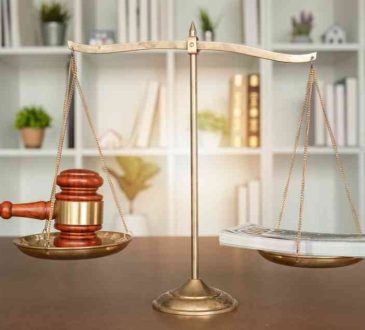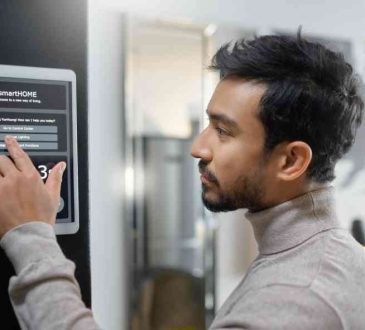The Impact Of Blockchain On IoT Data Privacy

The Internet of Things (IoT) and blockchain technology have received much attention in recent years as two technologies with the potential to transform many different fields. But, data privacy has become an increasing problem as IoT devices become increasingly widespread. With so much information being sent and stored by IoT gadgets, ensuring it’s safe from prying eyes is crucial. If you’re concerned about your data’s security on the Internet of Things, blockchain technology may be the answer. Concerns about data privacy in the Internet of Things (IoT) are rising, and in this article, we’ll look at how blockchain, a revolutionary new technology, might assist.
Understanding IoT Data Privacy
IoT devices collect and use data from various sources, such as sensors, cameras, microphones, and other connected devices, to perform various functions. This data may include personal and sensitive information such as location, health, and biometric data. Thus, it is crucial to ensure that the privacy of this data is maintained.
However, IoT data privacy poses several challenges, including:
- Large amounts of data are being collected and shared by IoT devices, making it difficult to secure.
- Lack of standardization and regulation in IoT data privacy.
- IoT devices are often deployed in insecure environments, making them vulnerable to hacking and other cybersecurity threats.
- IoT devices’ limited processing and storage capacity makes it challenging to implement sophisticated security measures.
- These challenges create significant risks for individuals, organizations, and governments, and it is essential to address them to ensure that IoT technology can be used safely and securely.
Some examples of IoT data privacy breaches include:
- The 2018 Strava fitness app data breach, where user location data was inadvertently shared publicly.
- In the 2016 Dyn cyberattack, a botnet compromised IoT devices and used them to carry out a massive DDoS attack.
- The 2017 CloudPets data breach, where data from connected toys was compromised, exposing user data and voice recordings.
To ensure IoT data privacy, it is essential to implement robust security measures such as encryption, access control, and data anonymization. Additionally, standardization and regulation of IoT data privacy can help ensure that all IoT devices adhere to specific privacy and security standards.
The Role of Blockchain in IoT Data Privacy
Several problems with protecting IoT data may be amenable to blockchain technology’s solutions. Blockchains are distributed digital ledgers that record transactions and data in an immutable and decentralized way across a network of computers. It has various advantages for protecting the privacy of IoT data, such as:
Decentralization
One of the most significant advantages of blockchain technology in securing IoT data is its decentralized nature. Unlike traditional centralized systems, where data is stored on a single server, blockchain data is distributed across a network of computers, making it more resilient to attacks. In the case of IoT, where millions of devices are connected, this distributed approach is critical in ensuring that data is not compromised.
In a decentralized blockchain network, as the one oil profit has, each node has a copy of the ledger, and the network must approve any changes made to the data. This consensus mechanism ensures that no single entity can tamper with the data. For example, if a hacker attempts to change data on one node, the other nodes in the network will verify the changes, and if they don’t match, the data will be rejected. As a result, blockchain makes it more difficult for hackers to compromise IoT devices and steal sensitive information.
Immutable Records
Another benefit of blockchain technology in securing IoT data is its ability to create immutable records. Once data is added to the blockchain, it cannot be altered or deleted, providing a tamper-proof record of all transactions. This feature is handy in IoT because it ensures that data remains intact and cannot be changed by unauthorized parties.
For example, suppose an IoT device records a patient’s health data. In that case, the data can be added to the blockchain, where it will be stored securely and immutably. This ensures that the data remains private and secure and cannot be tampered with by anyone, including the device manufacturer or a malicious actor.
Security
Blockchain technology uses advanced encryption and cryptography to secure data. Each block in the chain is linked to the previous block using a cryptographic hash function, making it impossible to change data without detection. Additionally, each transaction is validated using a digital signature, ensuring only authorized parties can access the data.
In the case of IoT, this level of security is crucial, given the sensitive nature of the collected data. IoT data can be encrypted and secured using blockchain, ensuring that only authorized parties can access it.
Transparency
The decentralized nature of blockchain technology also provides transparency, allowing all parties to view and verify transactions. This feature is handy in IoT because it ensures accurate and reliable data.
For example, suppose an IoT device records environmental data such as temperature, humidity, and air quality. In that case, this data can be added to the blockchain, which will be transparently recorded and validated by the network. This ensures that the data remains accurate and reliable and can be used by various stakeholders, including researchers, policymakers, and citizens.
In conclusion, blockchain technology can significantly secure IoT data privacy by providing a decentralized, immutable, and secure platform for storing and sharing data. By leveraging blockchain’s advanced cryptography and consensus mechanisms, IoT devices can ensure that sensitive data remains secure and private, providing a foundation for building trustworthy and reliable IoT ecosystems.
Have you read?
These are the world’s trendiest countries, 2023.
The World’s Richest People (Top Billionaires, 2023).
Best Apps for Reading News for Google’s Android and Apple’s iOS, 2023.
Music successful CEOs and c-level executives listen to.
Which are the healthiest countries in the world for 2023?
Add CEOWORLD magazine to your Google News feed.
Follow CEOWORLD magazine headlines on: Google News, LinkedIn, Twitter, and Facebook.
Copyright 2024 The CEOWORLD magazine. All rights reserved. This material (and any extract from it) must not be copied, redistributed or placed on any website, without CEOWORLD magazine' prior written consent. For media queries, please contact: info@ceoworld.biz









